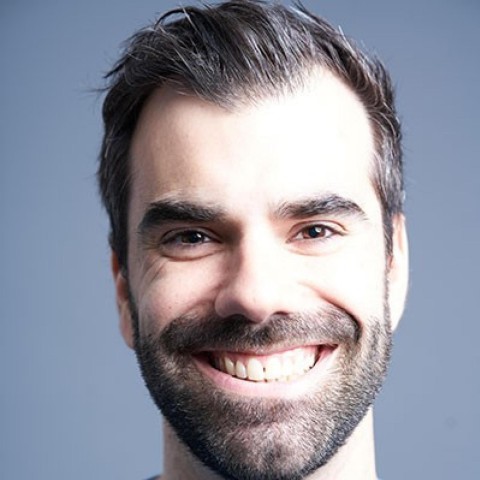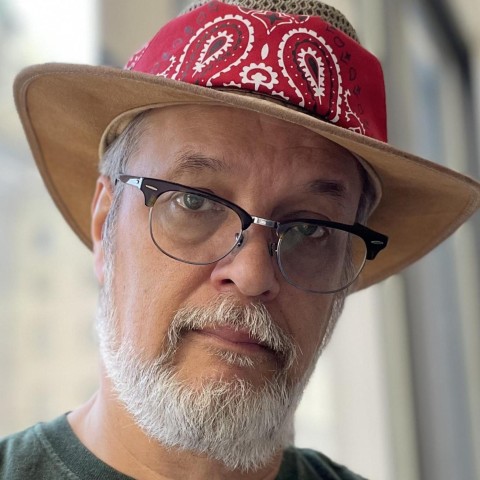Become a visionOS specialist in 6 weeks!
Boost your skills in spatial computing and dive into the world of mixed reality! Join our specialized live bootcamp to hone your ability to create immersive experiences on Apple's visionOS platform, all under the guidance of our seasoned industry professionals. This is your chance to enhance your development portfolio and position yourself at the cutting edge of immersive technology.

6 weeks
6-8 hrs/week
Next cohort expected in 2025
TBC
Live sessions twice a week
visionOS Bootcamp Details
This focused live bootcamp equips you with the advanced skills you need to thrive in the ever-evolving tech landscape.
Learn how to leverage the powerful capabilities of visionOS to create apps that stand out. Enrich your app development portfolio and establish yourself in the specialized field of spatial development, utilizing the robust features of visionOS to bring your innovative ideas to life.
First, get hands-on with industry best practices for accessibility on visionOS. Our expert instructors will guide you in creating inclusive apps that adhere to Apple's Human Interface Guidelines.
Then, you'll launch into the exciting world of 3D development using RealityKit and Reality Composer Pro. Become proficient in the art of building 3D scenes with models, animations, and user interactions — all designed to seamlessly integrate with your visionOS apps.
The next cohort is expected in 2025. The live session are twice a week.
Prerequisites
You are self-driven and motivated to learn. Participation in this program requires consistently meeting deadlines and devoting at least 6 hours per week to your work, including two one-hour live classes per week. You have a Mac computer with Apple silicon (M1 chip or later) capable of running macOS Sonoma, as well as Xcode 15 or later.
Weeks 1–2
After a quick introduction to visionOS, you'll dive straight into the oft-overlooked topic of accessibility.
You'll gain a thorough understanding of accessibility best practices and how to adhere to Apple's Human Interface Guidelines. Learn to implement features like VoiceOver, Dynamic Type, and Accessibility Traits using SwiftUI and Xcode. This ensures your apps cater to a wider audience and deliver a seamless user experience for all.
Weeks 3–4
You'll start exploring the captivating realm of building immersive 3D experiences for visionOS. You’ll gain a thorough understanding of RealityKit, the framework that forms the foundation for these cutting-edge interactions.
You'll be guided through building compelling 3D environments using models, animations, and physical simulations. You’ll also ramp up the visual impact of your creations with the power of Reality Composer Pro, a tool designed to streamline the creation of 3D experiences without requiring code.
Weeks 5–6
While polishing up your knowledge of Reality Compose Pro, you’ll begin work on your Capstone project, which will let you practice all the skills you've learned.
In the final week, you'll showcase your Capstone project and graduate!
Need to prepare?
You’ll need to be familiar with the Swift language and the process of developing a basic iOS app from start to finish. For a refresher, join Kodeco's iOS Ready on-demand certificate program.
Concepts covered
- Designing accessible visionOS apps
- RealityKit fundamentals
- Creating 3D experiences such as models, animations and physics
- Using Reality Composer Pro for AR creation
- Implementing user interactions in AR experiences
- Applying materials & shaders
On-demand bootcamps
If committing to this cohorts schedule doesn't suit your lifestyle, consider checking out Become a visionOS Specialist program as an on-demand bootcamp.
Get started today!
Mentors and Instructors

David Okun
visionOS instructor
David Okun is a Principal Engineer at LTK, based in Austin, Texas. He has worked with the Kitura team at IBM focusing on using Swift on the Server, and was previously the mobile Distinguished Engineer at Charles Schwab.

Tim Mitra
visionOS instructor
Tim is a mobile app developer, podcaster and blogger based in Toronto, Canada., He's an expert in various programming languages, frameworks, and technologies, with a particular focus on iOS, visionOS and macOS development. Tim is a passionate advocate for diversity and inclusion in the tech industry and has been a vocal supporter of efforts to make the industry more equitable and inclusive.
Frequently asked questions
Don’t see your question answered here? Check out our Knowledge Base here for more answers about our bootcamps.
Can’t find the answer you’re looking for? Contact our support team
What is the timeline for this bootcamp?
The next cohort of this six-week program is expected to start in 2025. Exact times are yet to be determined.
Can I choose my own start date?
No. This live bootcamp is cohort-based, meaning everyone starts and finishes on the same schedule, so all students must start the bootcamp on the planned start date. If the schedule doesn't work for you, consider "Become a vsionOS Specialist" On-Demand Certificate Program.
How much time should I plan to dedicate to bootcamp activities each week?
Students should allocate 6-8 hours per week to bootcamp activities, including attending live-sessions, studying content, completing reading assignments quizzes, and working on the Capstone project.
Content is introduced in the first live-session of the week and should be learned before the second live-session of the week. Quizzes should be completed over the weekend.
What are the prerequisites for enrolling?
Aside from the technical prerequisites listed on the program page, you'll also need an internet connection capable of joining video meetings and streaming or downloading video content. If you'll be traveling during the bootcamp, please consider internet connection issues.
What sort of interview or job preparation is included?
Because this is a tightly focused deep dive into visionOS, there is no job prep included in this bootcamp.
What will the assignments look like?
Each week of the bootcamp, you'll be given two assignments:
1. The Content Assignment, which assigns you books, video courses, and articles you need to read or watch to learn that week’s topic.
2. A Quiz, which gives you the chance to test your understanding of the material.
You’ll apply the lessons you learned throughout the bootcamp to build your Capstone project. The Capstone project will be graded on a rubric, so you'll know the exact requirements to receive a passing grade.
What if the assignment release schedule doesn’t work for me? Can I work ahead?
Our bootcamps are structured for a uniform pace rather than individual study times. This is to ensure a collaborative learning environment where students progress and engage with the material and each other simultaneously.
Letting students work ahead often leads to confusion and anxiety among the peers who are not working ahead. The current schedule is a strategic balance aimed at maximizing collective success.
If the assignment release schedule doesn’t work for you, consider joining our visionOS On-Demand Certificate Program instead.
If I struggle with a concept or homework, can I ask my mentor to hop on a video call to help me?
No, our mentors do not provide on-call video chat support. However, we provide training on how to effectively troubleshoot and get your questions answered asynchronously via text in our bootcamp chat channel. This skill will be valuable throughout your developer career.
Our mentors also offer open office hours on Discord, where you can stop by and ask any questions you have.
If you you fall behind and feel you need additional assistance, you can discuss options with the bootcamp coordinator.
What happens with Daylight Savings Time? Does the live-session time change?
The live-session time is in Eastern Time (ET). The time in which your live sessions occur will not change due to Daylight Savings. If your live sessions take place at 3 pm Eastern, for example, they will stay at 3 pm Eastern after the time change.
Depending where you are in the world, this might affect when the sessions take place in your local time. Not all regions have Daylight Savings, nor do all regions change on the same date as the United States.
EST is 5 hours behind UTC from November to March, while EDT is 4 hours behind UTC from March to November.
If Daylight Savings occurs during your bootcamp, the mentors and Bootcamp Coordinator will remind students beforehand.
What are the requirements for earning a Certificate of Graduation in this bootcamp?
To earn a Certificate of Graduation, students must:
⦁ Attend at least 50% of the live-sessions.
⦁ Submit and receive at least a passing grade on the Capstone project.
- We grade on a pass/fail system. Our Capstone rubric clearly designates what needs to be done to earn a passing grade.
- There will be weekly quizzes on the reading assignments. Passing these quizzes is not a requirement to get the Certificate of Completion.
⦁ Create and submit a short (1-2 minute) video to demo your Capstone App (the video itself is not graded).
⦁ Complete a final Student Exit Survey.
If you're not interested in a Certificate, or you realize partway through the bootcamp that you won't meet the requirements for graduation, that's OK! You're welcome to stay in the bootcamp to soak up all the feedback and guidance your mentors will offer.
What happens if I have to withdraw, or I am not able to complete the bootcamp?
If you have to withdraw from the bootcamp before it begins, you may request a refund by emailing support@kodeco.com before the course start date.
After the bootcamp begins, the bootcamp price is non-refundable. We may be able to offer partial refunds for extenuating circumstances, or move you to a future program. Please discuss your particular situation with your bootcamp coordinator and we’ll see what we can do.